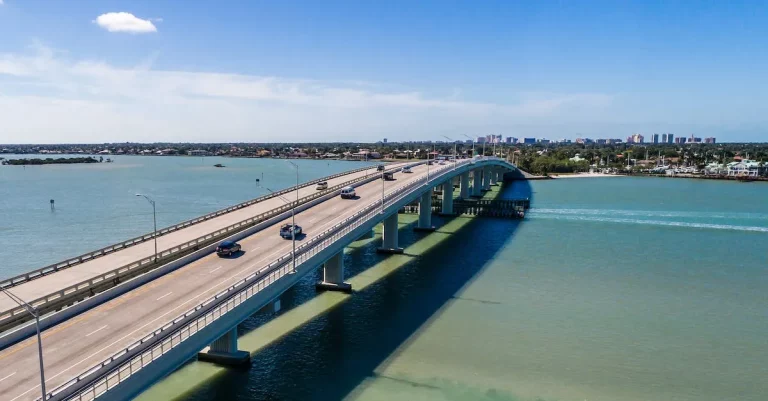Apartment Complex Towing Laws In California: What You Need To Know
Getting your car towed from your own apartment complex can be frustrating and expensive. But do apartment complexes have the right to tow vehicles, even if you’re a resident? What are your rights and what rules do apartment owners need to follow before towing in California?
If you’re short on time, here’s a quick overview: California laws protect residents from improper towing, and apartment complexes must follow rules like posting visible warning signs, keeping a tow log, and obtaining resident permission before towing from assigned spots.
In this comprehensive guide, we’ll explain everything you need to know about apartment towing laws in California. You’ll discover resident rights, signage and parking rules for apartment complexes, steps complexes must take before towing, how to recover your car and money for illegal tows, and how to prevent your car from getting towed in the first place.
California Laws Protecting Residents from Wrongful Towing
Living in an apartment complex can have its challenges, and one of the most frustrating experiences for residents is dealing with wrongful towing. Thankfully, California has implemented laws to protect residents from illegal and unfair towing practices.
These laws aim to ensure that residents are treated fairly and that tow companies follow specific guidelines when it comes to towing vehicles from apartment complexes.
View this post on Instagram
Relevant Statutes for Apartment Tows
When it comes to towing vehicles from apartment complexes, there are several relevant statutes in California that protect residents. One of the most important laws is the California Vehicle Code Section 22658, which outlines the rules that tow companies must follow.
This code specifies that a vehicle cannot be towed from private property without the proper authorization, such as a valid tow sign or the permission of the property owner or manager. Additionally, the code requires that tow companies must provide a notice to the property owner within an hour of towing a vehicle.
What Constitutes an Illegal Tow
It’s important for residents to know what constitutes an illegal tow in order to protect themselves from wrongful towing. According to California law, an illegal tow occurs when a tow company violates the rules and regulations outlined in the relevant statutes.
This can include towing a vehicle without proper authorization, towing a vehicle from a designated parking spot without cause, or failing to provide the required notice to the property owner.
It’s worth noting that residents should always check the signage in their apartment complex to ensure that it complies with the California Vehicle Code. If the signage is not clearly displayed or does not meet the requirements outlined in the code, any tow conducted based on that signage could be considered illegal.
By familiarizing themselves with the relevant statutes and understanding their rights, apartment complex residents can protect themselves from wrongful towing and ensure that they are treated fairly by tow companies.
Remember to always consult with legal professionals or local authorities if you believe your rights have been violated.
Parking Regulations at Apartment Complexes
Assigned Spots vs Unassigned Parking
When it comes to parking regulations at apartment complexes in California, one important factor to consider is whether the parking spots are assigned or unassigned. In some complexes, each tenant is assigned a specific parking spot, ensuring that they always have a designated space.
This system can be convenient for residents, as they don’t have to worry about finding a spot. However, it also means that parking is limited to those assigned spots, and unauthorized vehicles may be subject to towing.
In contrast, other apartment complexes have unassigned parking, allowing residents and visitors to park in any available spot. While this provides more flexibility, it can also lead to parking shortages and disputes among residents.
In such cases, it’s crucial to follow any specific guidelines or regulations set by the apartment complex to avoid potential towing.
Visitor Parking Rules
Visitor parking is an important aspect of parking regulations at apartment complexes. Many complexes provide designated visitor parking spaces to accommodate guests. However, it’s important to note that these spots are usually intended for short-term use only.
Some complexes may have restrictions on how long visitors can park in these spots, with time limits ranging from a few hours to a few days.
If you’re a resident expecting visitors, make sure to inform them about the parking rules in advance. This will help avoid any misunderstandings and ensure that your guests don’t end up with their vehicles being towed.
Additionally, if there are limited visitor parking spaces, it’s essential to remind your guests to park in designated areas and not in resident spots.
Signage Requirements
California law requires apartment complexes to have proper signage that clearly states the parking rules and regulations. These signs should be easily visible and include information such as visitor parking restrictions, towing policies, and any other relevant rules.
The size, color, and placement of the signs must comply with state regulations to ensure they are easily noticed by residents and visitors alike.
It’s important for residents to familiarize themselves with the parking signage in their apartment complex to avoid any violations that could lead to towing. If you notice any missing or damaged signs, it’s recommended to inform the property management so that they can rectify the issue promptly.
View this post on Instagram
Steps Apartments Must Take Before Towing
When it comes to towing vehicles in apartment complexes, California has specific laws in place to protect the rights of residents. Before an apartment complex can legally tow a vehicle, there are several important steps they must take to ensure that the towing is justified and carried out according to the law.
Documenting and Photographing Violations
Before towing a vehicle, apartment complexes in California must thoroughly document and photograph any violations committed by the vehicle owner. This documentation serves as evidence that the vehicle was parked illegally or in violation of the complex’s parking rules.
It is crucial for the apartment complex to have clear and indisputable evidence to support their decision to tow a vehicle.
The documentation should include the date and time of the violation, the specific parking rule that was violated, and clear photographs showing the violation. This evidence will help protect the apartment complex from any potential legal issues or disputes with the vehicle owner.
Written Warning Notices
Prior to towing a vehicle, apartment complexes are required to provide written warning notices to the vehicle owner. These notices should clearly state the parking violation that occurred, the potential consequences of continued violations, and the specific actions the vehicle owner must take to avoid towing.
It is important for apartment complexes to keep a record of these warning notices, including the date they were issued and any actions taken by the vehicle owner in response. This documentation helps demonstrate that the apartment complex made a good faith effort to communicate with the vehicle owner before resorting to towing.
Obtaining Permission for Assigned Spots
If an apartment complex has assigned parking spots, they must obtain permission from the vehicle owner before towing their vehicle from an assigned spot. The complex must have a clear and enforceable policy in place that outlines the consequences of parking in someone else’s assigned spot.
It is recommended that apartment complexes have a designated process for requesting permission to park in someone else’s assigned spot, such as obtaining a temporary parking permit from the complex’s management office.
This process helps prevent misunderstandings and ensures that vehicle owners are aware of the consequences of parking in someone else’s assigned spot.
By following these steps, apartment complexes in California can ensure that they are towing vehicles in accordance with the law. It is important for both apartment complexes and vehicle owners to be aware of their rights and responsibilities when it comes to towing in order to maintain a fair and harmonious living environment.
Recovering Your Vehicle After Being Towed
Discovering that your car has been towed can be a frustrating experience, but it’s important to remain calm and take the necessary steps to recover your vehicle. Here are some key things you need to know:
Finding Where Your Car Is
The first step in recovering your towed vehicle is to determine where it has been taken. In California, towing companies are required to notify the local police department within 30 minutes of towing a vehicle.
You can contact the non-emergency line of your local police department to obtain information about the towing company that has your car. Additionally, some police departments have online databases where you can search for your towed vehicle using your license plate number.
Getting Your Car Back
Once you have located your towed vehicle, you will need to gather certain documents and pay the necessary fees to retrieve it. Typically, you will need to provide proof of ownership (vehicle registration or title), a valid driver’s license, and proof of insurance.
It’s important to check with the specific towing company for any additional requirements they may have.
When you arrive at the tow yard, be prepared to pay the towing and storage fees. These fees can vary depending on the location and circumstances of the tow. It’s essential to familiarize yourself with the maximum towing and storage fees allowed by law in California, which brings us to our next subheading.
Maximum Towing and Storage Fees
In California, the maximum towing and storage fees are regulated by the California Vehicle Code. According to the law, the maximum towing fee for a private property tow is $500, while for a non-consent tow (such as a tow requested by law enforcement) or “private property” tows these rates are $160 for the first 10 miles and $4 for each additional mile.
These fees include the cost of the initial tow and the first day of storage.
For each additional day of storage, the maximum fee is $40. However, it’s important to note that these are the maximum allowable fees, and some towing companies may charge lower rates. It’s always a good idea to inquire about the fees upfront to avoid any surprises.
If you believe that the towing company has charged you more than the maximum allowable fees or has violated any other towing laws, you have the right to file a complaint with the California Department of Motor Vehicles (DMV).
The DMV investigates complaints against towing companies and can take appropriate action if necessary.
Recovering your vehicle after it has been towed can be a hassle, but by knowing the proper steps to take and understanding your rights, you can minimize the stress and get back on the road as quickly as possible.
View this post on Instagram
Recourse for Improper Towing
Reporting Illegal Tows
If you believe that your vehicle has been towed improperly from your apartment complex, it is essential to report the incident to the appropriate authorities. Start by contacting the local police department to file a report.
Provide them with all the necessary details, including the date, time, and location of the tow, as well as any evidence you may have, such as photographs or witness statements. Additionally, you can file a complaint with the California Department of Consumer Affairs to ensure that the towing company is held accountable for their actions.
Recovering Money Damages
If you have been a victim of improper towing, you may be entitled to recover money damages. In California, the law allows you to pursue a civil claim against the towing company for any financial losses you have incurred as a result of the improper tow.
This can include reimbursement for towing fees, storage fees, and any damages that may have occurred during the towing process. To increase your chances of success in this endeavor, it is advisable to consult with a knowledgeable attorney who specializes in towing laws.
Other Legal Remedies
Aside from reporting illegal tows and seeking money damages, there are other legal remedies available to victims of improper towing. One option is to file a complaint with the California Department of Motor Vehicles (DMV).
The DMV has the authority to investigate and take disciplinary action against towing companies that engage in predatory or unlawful practices. Additionally, you can take your case to small claims court if the amount of damages you are seeking falls within the court’s jurisdiction.
Remember to gather all relevant evidence and documentation to support your claim.
It’s worth noting that each case is unique, and the specific remedies available to you may vary depending on the circumstances. Therefore, it is crucial to consult with legal professionals to understand your rights and options fully.
Conclusion
California has strict laws protecting residents from predatory towing practices. Apartment complexes must clearly mark parking rules, issue warnings, obtain consent for assigned spots, and avoid towing at improper times.
If your vehicle is wrongfully towed, you can recover up to $1000 in damages as well as towing and storage fees. By understanding your rights as a resident, you can avoid the headache and cost of an illegal apartment tow.








